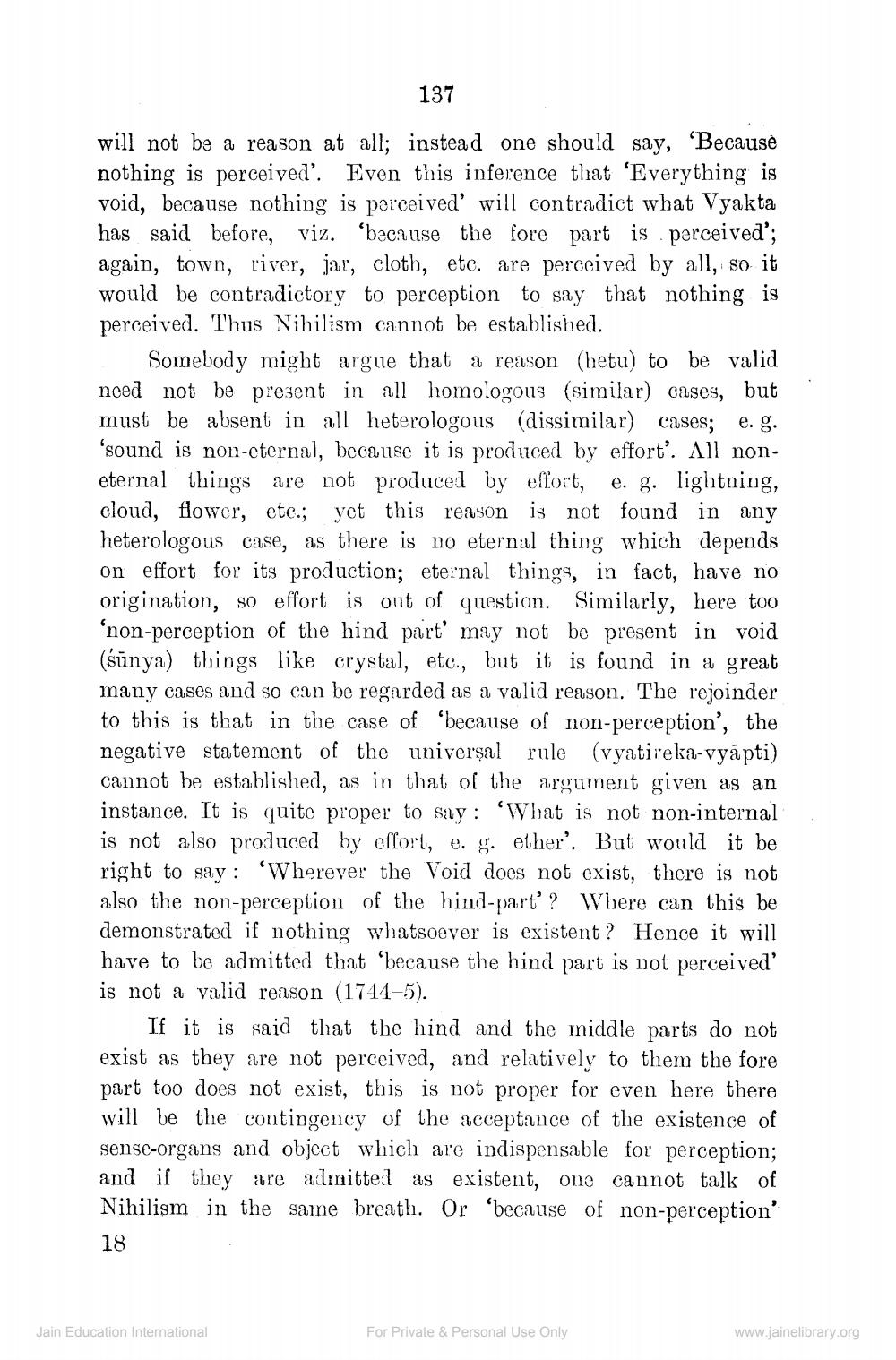________________
137
will not be a reason at all; instead one should say, 'Because nothing is perceived. Even this inference that 'Everything is void, because nothing is perceived' will contradict what Vyakta has said before, viz. 'because the fore part is perceived'; again, town, river, jar, cloth, etc. are perceived by all, so it would be contradictory to perception to say that nothing is perceived. Thus Nihilism cannot be established.
Somebody might argue that a reason (hetu) to be valid need not be present in all homologous (similar) cases, but must be absent in all heterologous (dissimilar) cases; e. g. 'sound is non-eternal, because it is produced by effort'. All noneternal things are not produced by effort, e. g. lightning, cloud, flower, etc.; yet this reason is not found in any heterologous case, as there is no eternal thing which depends on effort for its production; eternal things, in fact, have no origination, so effort is out of question. Similarly, here too ‘non-perception of the hind part' may not be present in void (šūnya) things like crystal, etc., but it is found in a great many cases and so can be regarded as a valid reason. The rejoinder to this is that in the case of 'because of non-perception', the negative statement of the univerşal rule (vyatireka-vyāpti) cannot be established, as in that of the argument given as an instance. It is quite proper to say: 'What is not non-internal is not also produced by effort, e. g. ether'. But would it be right to say: 'Wherever the Void does not exist, there is not also the non-perception of the hind-part? Where can this be demonstrated if nothing whatsoever is existent? Hence it will have to be admitted that because the hind part is not perceived' is not a valid reason (1744-5).
If it is said that the hind and the middle parts do not exist as they are not perceived, and relatively to them the fore part too does not exist, this is not proper for even here there will be the contingency of the acceptance of the existence of sense-organs and object which are indispensable for perception; and if they are admitted as existent, one cannot talk of Nihilism in the same breath. Or 'because of non-perception' 18
Jain Education International
For Private & Personal Use Only
www.jainelibrary.org




